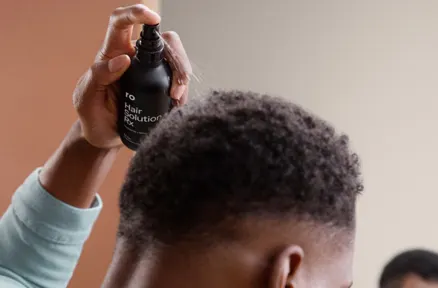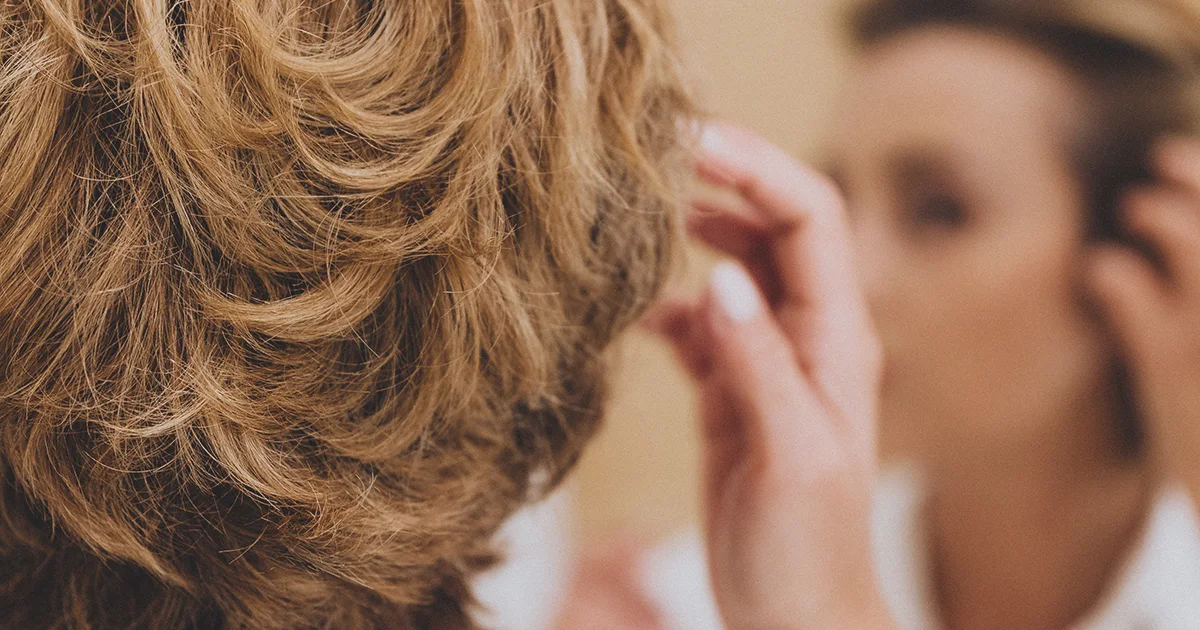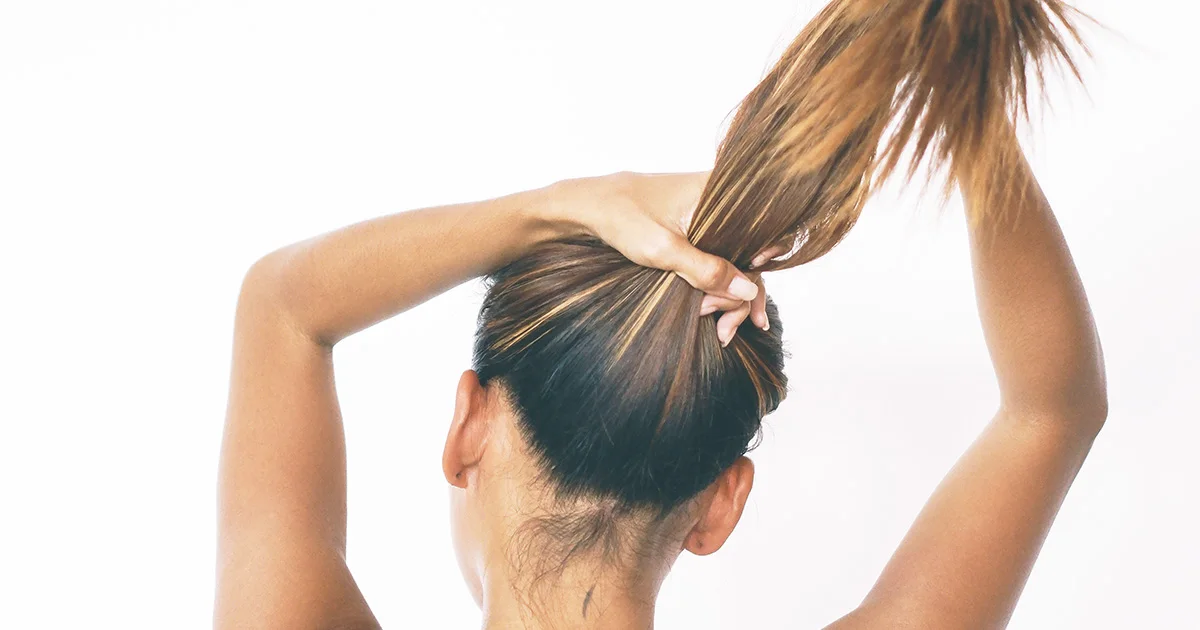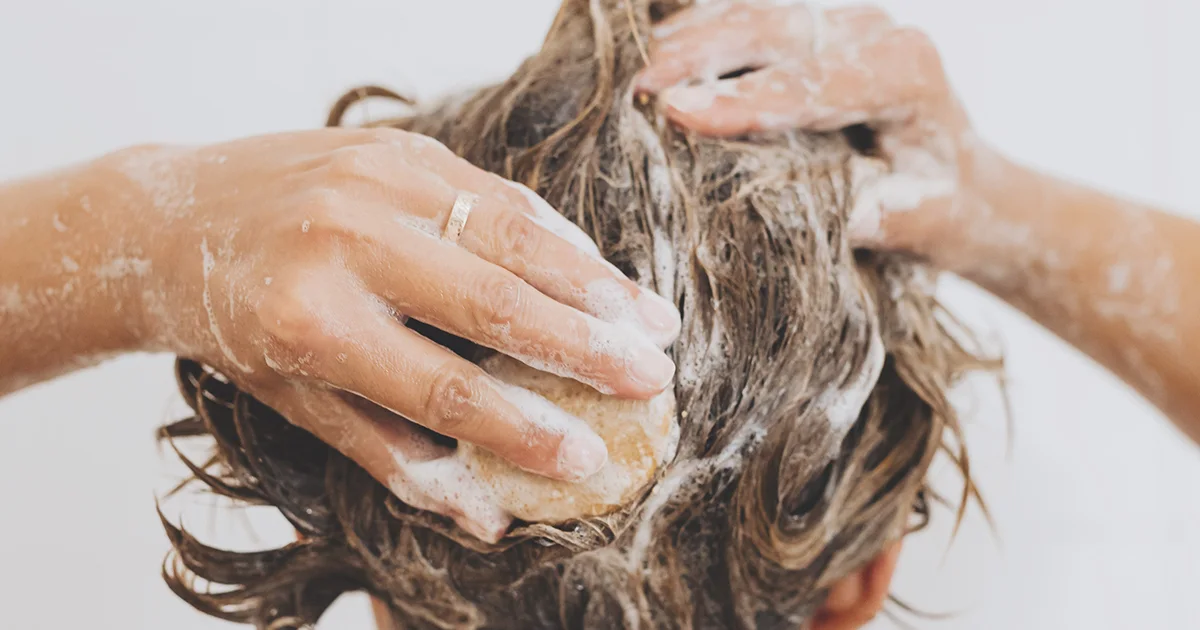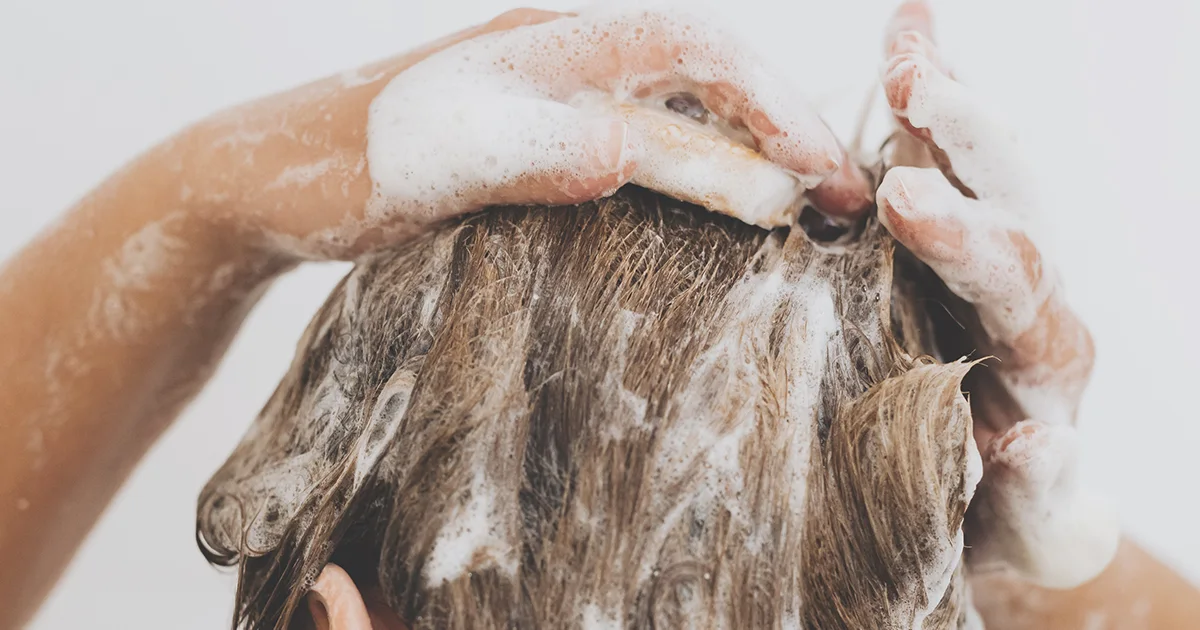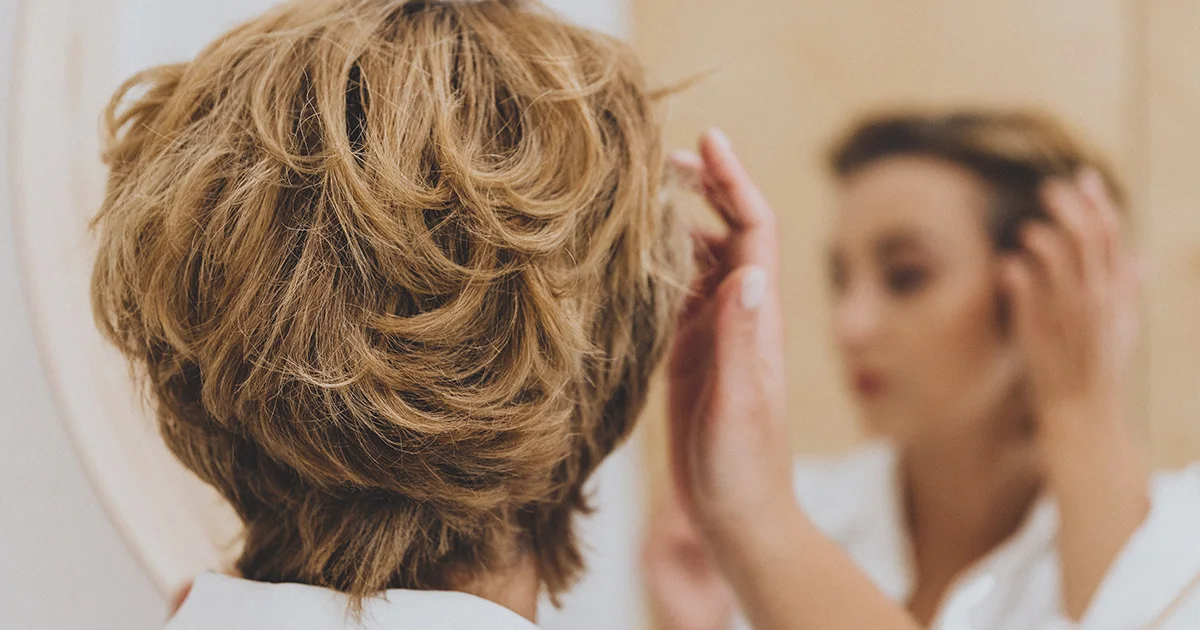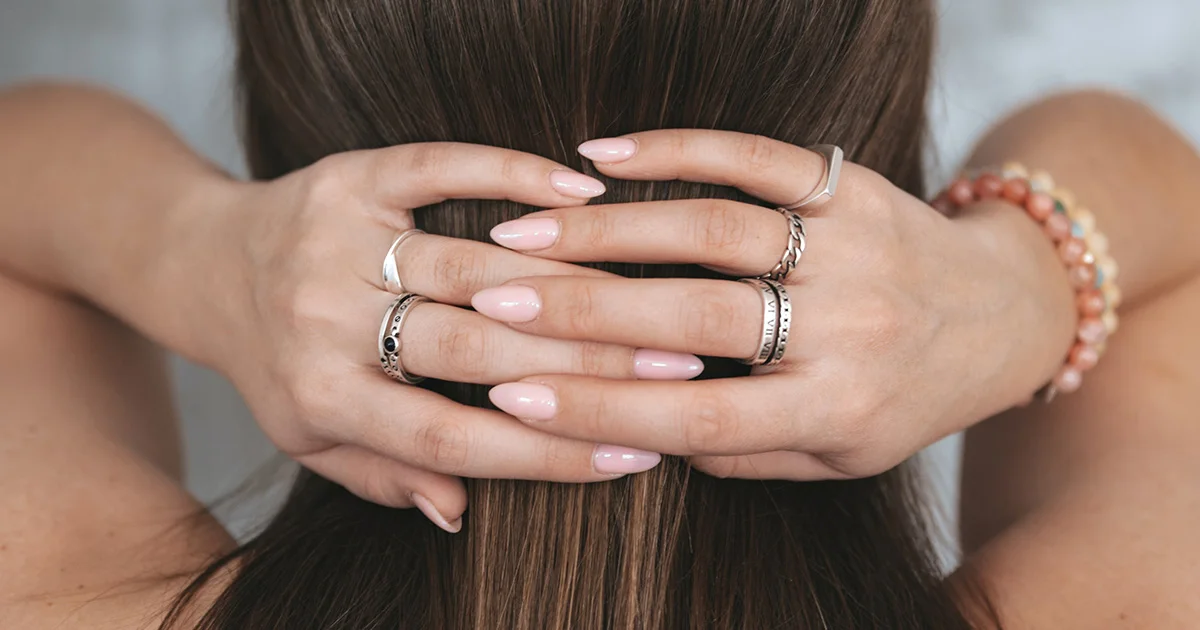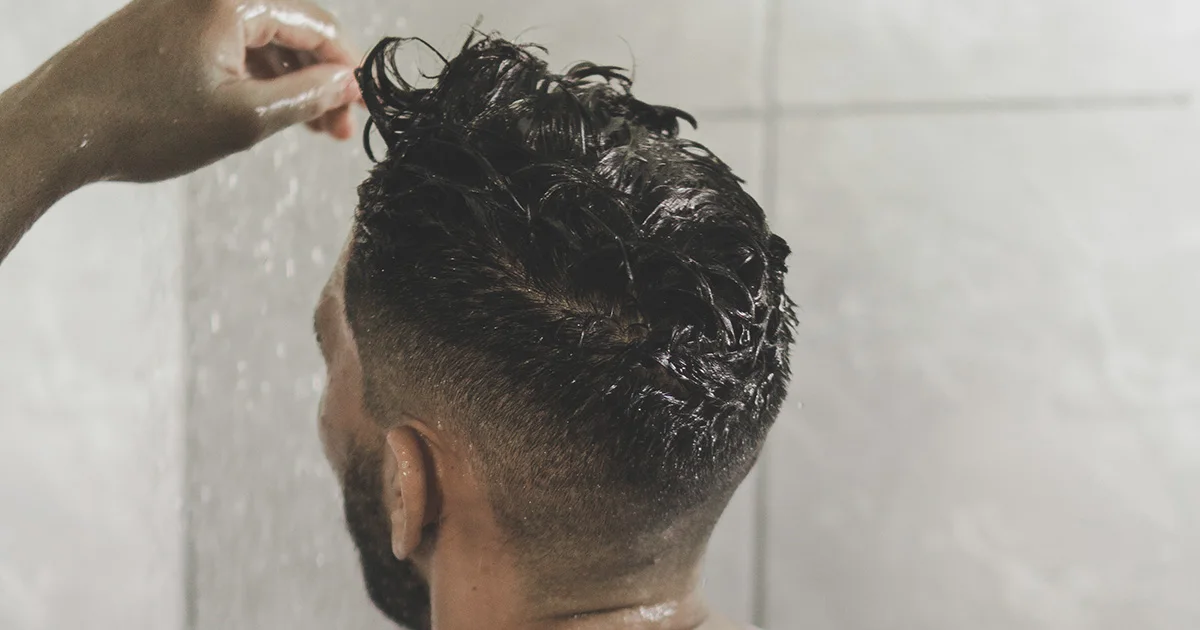Here's what we'll cover
Here's what we'll cover
Here's what we'll cover
If you’re interested in glossier, straighter hair, you may have looked into keratin treatments. What exactly do these straightening treatments entail and can they really make your hair look like the star of a Pantene commercial? Let’s explore.
What is keratin?
Keratin is a protective protein found in hair, skin, and nails. It’s basically a structural building block––roughly 90% of your hair is made up of keratin (Villa, 2013).
To understand how keratin protects hair, let’s take a look at the structure of hair. Each strand is made up of several fibers packed together in what’s called the cortex, which is what gives hair its color and strength. Protecting the cortex is a cuticle, which is the outermost layer of an individual hair.
There are two main types of keratin proteins present in the hair cortex and cuticle (Greenwold, 2014):
Alpha-keratin is found in the cortex of human hair. Alpha-keratin is also present in human skin and nails.
Beta-keratin is found in the hair cuticle.
Together, these two types of keratin give your hair strength and improve its resistance to breakage. They can also prevent damage from things like aging, sunlight, heat styling, bleaching, coloring, perms, and even vigorous brushing (Villa, 2013).
What is keratin used for?
Thanks to its protective qualities, keratin is a key ingredient in treatments that claim to strengthen hair and give it a healthy, glossy appearance.
However, the mileage you get with keratin varies depending on your hair type, how healthy your hair is, and what product you use. Keratin found in these products is often sourced from plants and animals (like sheep’s wool or chicken feathers) (Basit, 2018).
Hair treatments
Keratin hair treatments (also known as a Brazilian blowout) promise to make hair look luscious, frizz-free, and easier to style. Some products advertise improving color in dyed hair and helping tame curly or unruly hair (Weathersby, 2013).
Brazilian keratin treatments are done in a hair salon. You can also purchase treatments to try yourself at home, but it’s a complicated process that’s better off left to the professionals. Here’s how a keratin hair treatment works:
First, a stylist applies keratin cream to your hair before blow-drying and straightening it.
Once that is finished you’ll go home and keep your hair dry for several days before returning to the salon.
On your return visit, the stylist will wash out the chemicals and apply a setting treatment, which can keep hair straight for up to three months.
Here comes the big question: do keratin treatments actually work? Research and anecdotal reports lean towards yes. Studies have found that when keratin was applied to chemically damaged hair, it thickened locks by almost 50%. After a single one-hour keratin treatment, the strength of bleached hair and straightened curly hair doubled (Basit, 2018).
Haircare products
You can purchase keratin hair care products online and from beauty supply stores. Shampoos, conditioners, and hair serums you buy in stores don’t provide the same straightening effects as a salon keratin treatment. However, they may help repair hair that’s damaged or fried from heat and coloring.
In one small study, keratin-based particles were found to improve the smoothness of both natural and overbleached hair suggesting keratin could have potential benefits if added to hair care products (Tinoco, 2018).
Another study found that keratin shampoo and rinse-off conditioner improved the hydration of hair and gave it a brighter, softer appearance, even after heat styling (Villa, 2013).
Are there any side effects to keratin hair treatments?
Many people get salon treatments or use keratin products without experiencing side effects (Weathersby, 2013).
But some people may want to be more careful or avoid treatments altogether because of the possible risks. For example, some people may also develop an allergic reaction on their skin or scalp after a treatment (Gavazzoni-Dias, 2016).
Historically, keratin creams used in salons contained formaldehyde (even products labeled as formaldehyde-free) (Maneli, 2014). Formaldehyde is known to cause cancer and can pose a risk to many, including pregnant people and those with respiratory conditions. Fortunately, keratin treatments today do not contain formaldehyde, although it may still be released during the blow-drying or straightening process (Gavazzoni-Dias, 2016).
Any formaldehyde exposure actually poses a greater risk to stylists and hair professionals offering the treatment as they can be exposed for hours at a time or have multiple treatments going on. If you have concerns, you can always ask your stylist about the ingredients first.
Keratin supplements
Keratin supplements intended to be taken by mouth can be purchased over-the-counter and come in powder or pill form. These supplements may also contain other vitamins or proteins like biotin or collagen to improve the appearance and texture and your hair. But whether or not they work is up for debate.
There are some small studies that seem to show some benefit to these products. In one, 50 women were separated into two groups: one took keratin-containing capsules (that contained other vitamins and minerals as well) daily and another group took a placebo. After 90 days, those who took the supplements experienced less hair loss, along with stronger and brighter hair. They reported their nails also had a smoother appearance and were less prone to breakage (Beer, 2014).
Another study evaluated a supplement containing the building blocks of keratin (as well as other vitamins and minerals) among women with telogen effluvium, a specific type of hair loss characterized by periods of sudden shedding. The study found that after 180 days, people taking the supplements had reduced hair loss, increased hair volume and scalp cover, and improved shine and strength (Sant'Anna Addor, 2018).And while that might sound encouraging, it’s not strong enough evidence to recommend keratin supplements as a sweeping recommendation for full and luscious locks. For people with a biotin deficiency, supplementing with biotin works. But biotin deficiencies are rare.
If you’re experiencing sudden hair loss, a visit with your healthcare provider is probably the way to go. There are many medical conditions that can cause hair loss, including thyroid problems, stress, and even giving birth. Getting to the root of the problem can be the first step in getting your hair back on track.
DISCLAIMER
If you have any medical questions or concerns, please talk to your healthcare provider. The articles on Health Guide are underpinned by peer-reviewed research and information drawn from medical societies and governmental agencies. However, they are not a substitute for professional medical advice, diagnosis, or treatment.
References
Basit, A., Asghar, F., Sadaf, S., & Akhtar, M. W. (2018). Health improvement of human hair and their reshaping using recombinant keratin K31. Biotechnology Reports , 20. doi:10.1016/j.btre.2018.e00288. Retrieved from https://pubmed.ncbi.nlm.nih.gov/30416979/
Beer, C., Wood, S., & Veghte, R. H. (2014). A clinical trial to investigate the effect of Cynatine HNS on hair and nail parameters. The Scientific World Journal . doi:10.1155/2014/641723. Retrieved from https://pubmed.ncbi.nlm.nih.gov/25386609/
Greenwold, M. J., Bao, W., Jarvis, E. D., Hu, H., Li, C., Gilbert, M. T., et al. (2014). Dynamic evolution of the alpha (α) and beta (β) keratins has accompanied integument diversification and the adaptation of birds into novel lifestyles. BMC Evolutionary Biology, 14, 249. doi:10.1186/s12862-014-0249-1. Retrieved from https://pubmed.ncbi.nlm.nih.gov/25496280/
Gavazzoni-Dias, M. F., Rochael, M., Vilar, E., Tanus, A., & Tosti, A. (2016). Eczema-like psoriasiform skin reaction due to Brazilian keratin treatment. Skin Appendage Disorders , 1 (3), 156–162. doi:10.1159/000442529. Retrieved from https://pubmed.ncbi.nlm.nih.gov/27172059/
Maneli, M. H., Smith, P., & Khumalo, N. P. (2014). Elevated formaldehyde concentration in "Brazilian keratin type" hair-straightening products: a cross-sectional study. Journal of the American Academy of Dermatology , 70 (2), 276–280. doi: 10.1016/j.jaad.2013.10.023. Retrieved from https://pubmed.ncbi.nlm.nih.gov/24332313/
Sant'Anna Addor, F. A., Donato, L. C., & Melo, C. (2018). Comparative evaluation between two nutritional supplements in the improvement of telogen effluvium. Clinical, Cosmetic and Investigational Dermatology , 11, 431–436. doi:10.2147/CCID.S173082 Retrieved from https://pubmed.ncbi.nlm.nih.gov/30237729/
Tinoco, A., Gonçalves, J., Silva, C., Loureiro, A., Gomes, A. C., Cavaco-Paulo, A., et al. (2018). Keratin-based particles for protection and restoration of hair properties. International Journal of Cosmetic Science , 40 (4), 408–419. doi:10.1111/ics.12483. Retrieved from https://pubmed.ncbi.nlm.nih.gov/30047992/
Villa, A. L., Aragão, M. R., Dos Santos, E. P., Mazotto, A. M., Zingali, R. B., de Souza, E. P., et al. (2013). Feather keratin hydrolysates obtained from microbial keratinases: effect on hair fiber. BMC Biotechnology , 13, 15. doi:10.1186/1472-6750-13-15. Retrieved from https://pubmed.ncbi.nlm.nih.gov/23414102/
Weathersby, C. & McMichael, A. (2013). Brazilian keratin hair treatment: a review. Journal of Cosmetic Dermatology , 12 (2), 144–148. doi:10.1111/jocd.12030. Retrieved from https://pubmed.ncbi.nlm.nih.gov/23725308/
